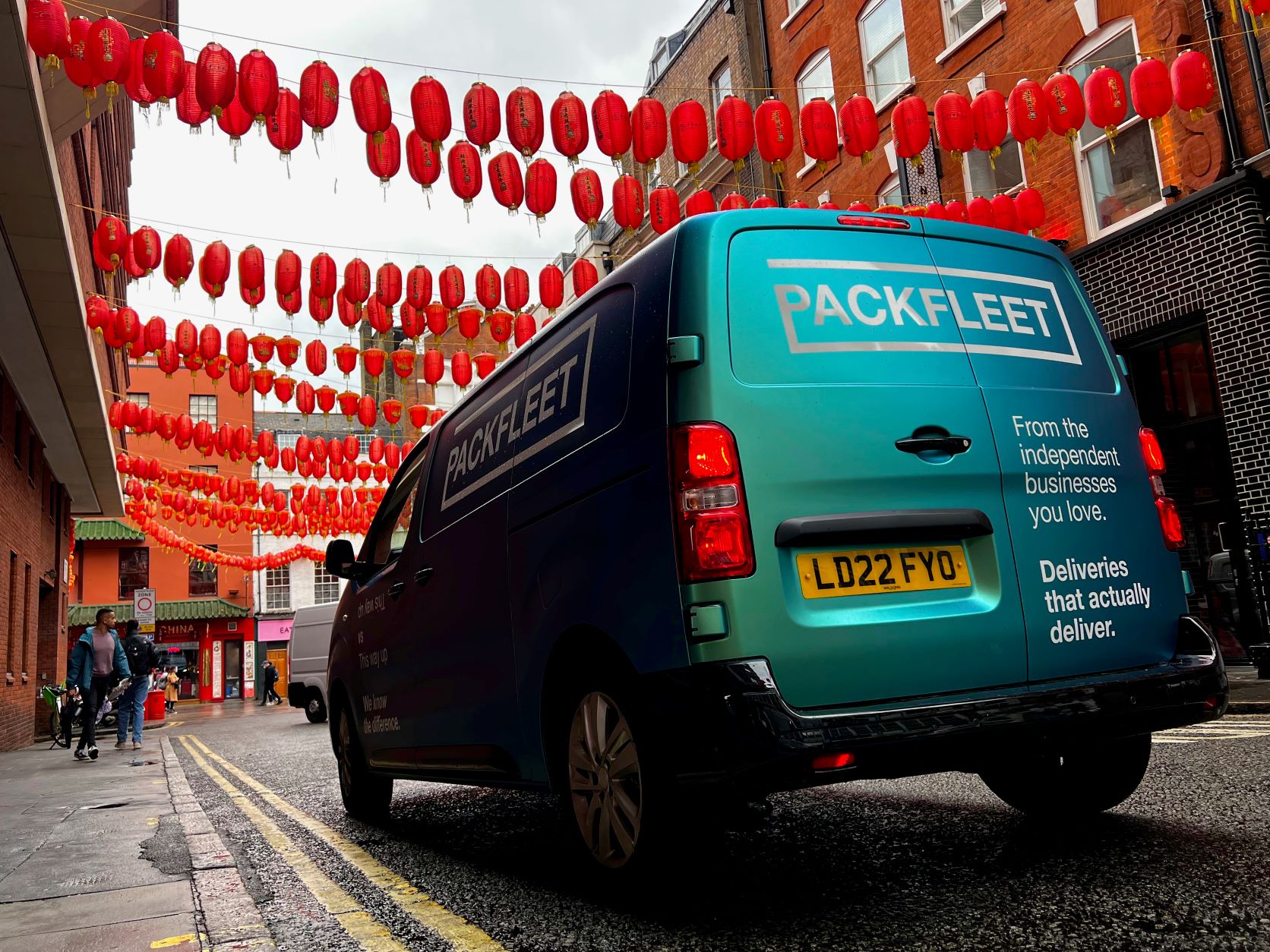All-electric delivery company Packfleet says it is revolutionising seasonal driver standards this Christmas by offering sector-topping benefits during the notoriously busy period.
At a time that is plagued with horror stories from drivers working for well-known courier companies, Packfleet is paying all its drivers above the London living wage, and provides private healthcare and pensions.
Workers will receive free lunch and snacks when they’re on the road, and £30 a month to spend at some of the 130+ merchants who ship with Packfleet – including meal kit service Dishpatch, and online cheesemonger Cheesegeek.
Packfleet will more than double its workforce during the seasonal spike, with a variety of part-time and full-time roles available. The business will be offering drivers permanent contracts once the Christmas period has finished, to help expand their operation across the country.
At a time where many cash-strapped Londoners are looking to supplement incomes, Packfleet’s seasonal staff are both paid 30% better than industry average and are set to be the best treated in Britain. Drivers from the likes of Yodel, DPD and Evri have already jumped ship, citing the better workplace culture as the main draw.
Packfleet says it isn’t just leading the way with driver standards, it says it is also protecting the planet. Its entire fleet is electric and charged by renewable energy, and it plants a tree for every parcel shipped.
Tristan Thomas, CEO and co-founder of Packfleet, says “We believe that every driver should be treated fairly all year round. You see office staff up and down the country receive all sorts of benefits during the festive season, so why shouldn’t it be the same for drivers?
“The logistics sector is rife with horror stories – especially during such a notoriously busy period – and we’re changing that. We don’t overwhelm our drivers with parcels, and our tech puts them on the quickest route possible, meaning they don’t have to speed around London to hit delivery targets.
“We’re bringing driver employment standards in line with the rest of the working world. The stories we hear from drivers at the major courier services are, quite frankly, unacceptable. It’s disgraceful that these have become the industry standard.”
Ayath Ullah, a delivery driver for Packfleet, says: “At Packfleet, we deliver on time, but I’m encouraged to speak with customers, and never feel overwhelmed with unrealistic delivery expectations. In my previous courier job, I constantly felt under pressure to deliver parcels quickly at all costs – but I’ve never felt that way at Packfleet.
“I’ve been here for over a year now, and my experience with them has been 10x better than at any other company. I love it here, and don’t understand why more businesses aren’t treating their drivers this well.”
Applications for the seasonal roles are open now, and prospective drivers can apply by following THIS LINK.






